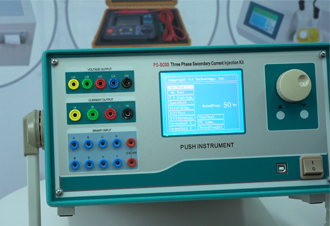 English
English



-
 Afrikaans
Afrikaans -
 Albanian
Albanian -
 Amharic
Amharic -
 Arabic
Arabic -
 Armenian
Armenian -
 Azerbaijani
Azerbaijani -
 Basque
Basque -
 Belarusian
Belarusian -
 Bengali
Bengali -
 Bosnian
Bosnian -
 Bulgarian
Bulgarian -
 Catalan
Catalan -
 Cebuano
Cebuano -
 China
China -
 China (Taiwan)
China (Taiwan) -
 Corsican
Corsican -
 Croatian
Croatian -
 Czech
Czech -
 Danish
Danish -
 Dutch
Dutch -
 English
English -
 Esperanto
Esperanto -
 Estonian
Estonian -
 Finnish
Finnish -
 French
French -
 Frisian
Frisian -
 Galician
Galician -
 Georgian
Georgian -
 German
German -
 Greek
Greek -
 Gujarati
Gujarati -
 Haitian Creole
Haitian Creole -
 hausa
hausa -
 hawaiian
hawaiian -
 Hebrew
Hebrew -
 Hindi
Hindi -
 Miao
Miao -
 Hungarian
Hungarian -
 Icelandic
Icelandic -
 igbo
igbo -
 Indonesian
Indonesian -
 irish
irish -
 Italian
Italian -
 Japanese
Japanese -
 Javanese
Javanese -
 Kannada
Kannada -
 kazakh
kazakh -
 Khmer
Khmer -
 Rwandese
Rwandese -
 Korean
Korean -
 Kurdish
Kurdish -
 Kyrgyz
Kyrgyz -
 Lao
Lao -
 Latin
Latin -
 Latvian
Latvian -
 Lithuanian
Lithuanian -
 Luxembourgish
Luxembourgish -
 Macedonian
Macedonian -
 Malgashi
Malgashi -
 Malay
Malay -
 Malayalam
Malayalam -
 Maltese
Maltese -
 Maori
Maori -
 Marathi
Marathi -
 Mongolian
Mongolian -
 Myanmar
Myanmar -
 Nepali
Nepali -
 Norwegian
Norwegian -
 Norwegian
Norwegian -
 Occitan
Occitan -
 Pashto
Pashto -
 Persian
Persian -
 Polish
Polish -
 Portuguese
Portuguese -
 Punjabi
Punjabi -
 Romanian
Romanian -
 Russian
Russian -
 Samoan
Samoan -
 Scottish Gaelic
Scottish Gaelic -
 Serbian
Serbian -
 Sesotho
Sesotho -
 Shona
Shona -
 Sindhi
Sindhi -
 Sinhala
Sinhala -
 Slovak
Slovak -
 Slovenian
Slovenian -
 Somali
Somali -
 Spanish
Spanish -
 Sundanese
Sundanese -
 Swahili
Swahili -
 Swedish
Swedish -
 Tagalog
Tagalog -
 Tajik
Tajik -
 Tamil
Tamil -
 Tatar
Tatar -
 Telugu
Telugu -
 Thai
Thai -
 Turkish
Turkish -
 Turkmen
Turkmen -
 Ukrainian
Ukrainian -
 Urdu
Urdu -
 Uighur
Uighur -
 Uzbek
Uzbek -
 Vietnamese
Vietnamese -
 Welsh
Welsh -
 Bantu
Bantu -
 Yiddish
Yiddish -
 Yoruba
Yoruba -
 Zulu
Zulu
oil type transformer testing
Oil Type Transformer Testing An Overview
Oil type transformers are critical components in electrical power systems, providing voltage transformation and electrical isolation. Testing these transformers is essential to ensure their reliability, efficiency, and safety. This article delves into the various testing methods used for oil type transformers, focusing on their importance, procedures, and the benefits of regular maintenance testing.
Importance of Transformer Testing
Transformers are exposed to numerous stresses during operation, including electrical, thermal, and mechanical factors. These stresses can lead to insulation degradation, overheating, and ultimately, transformer failure. Therefore, regular testing is crucial for several reasons
1. Preventive Maintenance Regular testing helps identify potential issues before they escalate into severe problems that can cause costly downtime or catastrophic failures. 2. Performance Evaluation Testing ensures that transformers operate within specified parameters, maintaining efficiency and reducing energy losses. 3. Safety Compliance Compliance with industry standards and safety regulations is vital for operational integrity. Testing provides documented evidence of a transformer's condition.
Common Testing Methods
Several testing methods are employed to assess the condition and performance of oil type transformers
. These tests can be broadly categorized into routine, type, and special tests.1. Routine Tests These tests are conducted on every transformer before it is commissioned. They typically include - Winding Resistance Test This test measures the resistance of the transformer windings to identify any loose connections or damaged windings. - Insulation Resistance Test By applying a high voltage to the insulation, this test evaluates its integrity. High insulation resistance indicates healthy insulation, while low values may suggest deterioration. - Transformer Turns Ratio (TTR) Test This test verifies the ratio of the number of turns in the primary and secondary windings, ensuring they meet design specifications.
oil type transformer testing

2. Type Tests These are conducted to verify the design specifications of the transformer and include more comprehensive evaluations, such as - Short-Circuit Test This determines the transformer's ability to withstand short-circuit conditions, crucial for ensuring reliability under fault conditions. - Temperature Rise Test Conducted to confirm that the transformer operates within acceptable temperature limits, this test provides insights into thermal performance. 3. Special Tests In specific situations, additional testing may be required. This includes - Dissolved Gas Analysis (DGA) This critical test analyzes gases dissolved in transformer oil. The presence of certain gases can indicate insulation deterioration or arcing, allowing for early detection of issues. - Power Factor Testing This evaluates the power factor of the insulation system, providing insights into dielectric strength and insulation integrity.
Benefits of Regular Testing
Regular testing of oil type transformers offers numerous benefits
- Extended Lifespan By detecting and addressing issues early, regular testing extends transformer lifespan and enhances overall reliability. - Cost Savings Preventive maintenance through testing significantly reduces the risk of unexpected failures, leading to substantial cost savings associated with repairs and system downtime.
- Improved Safety Regular tests help ensure that transformers operate within safe parameters, minimizing the risk of accidents and equipment damage.
Conclusion
Oil type transformer testing is an essential practice that safeguards the reliability, efficiency, and safety of electrical power systems. Through routine, type, and special tests, utility companies and facilities can detect potential issues before they become significant problems. By investing in regular testing, organizations not only protect their assets but also ensure compliance with safety standards, promote efficient energy use, and extend the lifespan of their transformers. As the demand for reliable electricity continues to grow, the importance of transformer testing cannot be overstated.
-
Ensuring SF₆ Gas Safety: Introducing PUSH’s Integrated SF₆ Analyzer for Dew Point, Purity, and Decomposition MonitoringNewsJul.10,2025
-
Exploring the Main Types of Industrial Endoscopes and Their Applications Across IndustriesNewsJul.04,2025
-
Testing Equipment Industry Sees Major Advancements in 2025: Smart & Precision Technologies Lead the WayNewsJun.06,2025
-
Applications of Direct Current Generators in Renewable Energy SystemsNewsJun.05,2025
-
Hipot Tester Calibration and Accuracy GuidelinesNewsJun.05,2025
-
Digital Circuit Breaker Analyzer Features and BenefitsNewsJun.05,2025



